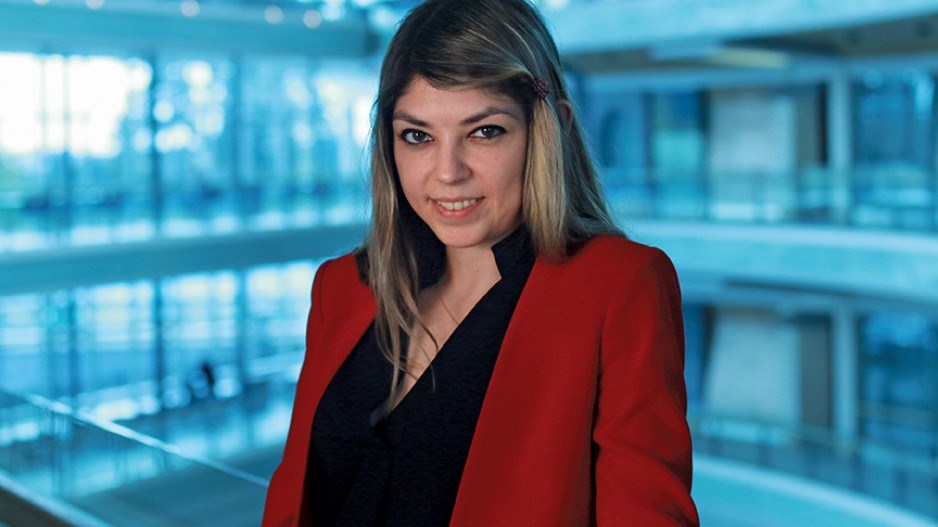More than a quarter of Metro Vancouver residents under 19 live in Surrey. That gives the city the region’s highest concentration of people who have yet to graduate from high school and head into the workforce or post-secondary education.
Much attention has been paid to Surrey’s youth lately, and one of the most recent examples has been the City of Surrey’s expansion of the Clayton Heights Activity Team, an after-school program for youth aged 13 to 18.
Prior to that expansion, in April, the city increased funding and expanded the Yo Bro Yo Girl Youth Initiative in Surrey elementary and secondary schools. Both initiatives are part of a bigger public safety strategy with an emphasis on crime reduction rolled out under Mayor Linda Hepner.
The unemployment rate among Surrey youth with degrees or diplomas has increased 50% since 2006, and only 14% of those aged 20 to 24 are currently employed, according to a study commissioned by the Surrey Board of Trade and carried out by the Surrey Cares Community Foundation.
Recently Simon Fraser University [SFU] the John Volken Academy, the City of Surrey and the Surrey Fire Fighters Charitable Society named Prof. Faranak Farzan as the inaugural chairwoman for technology innovations in youth addiction recovery and mental health as part of a plan to improve job and education prospects for the city’s young people.
Farzan will be taking a technological approach to youth mental health as a teacher at SFU’s school of mechatronic systems engineering. It includes trial runs for local youth of transcranial magnetic stimulation (TMS) and neuroimaging to target and assess the health of specific brain circuitries.
TMS is sometimes used to treat ailments such as depression when medication is unsuccessful. A magnetic coil is placed near the head of the patient, to target specific locations in the brain that have been shown to be associated with mental illness, depression and addiction. The electromagnetic coil stimulates specific nerve cells with a low-voltage electrical current.
Farzan said one of the key aims of the program, which is starting clinical trials through Surrey Memorial Hospital, is to help local at-risk youth suffering with mental health and addiction problems, which could eventually lead to economic benefits such as increased workforce numbers.
“When you’re impacted by substance abuse or addiction or depression it’s not only your mood that’s impacted,” Farzan said. “One of the major issues that we see in this population is on cognitive function. So they’re not able to concentrate, and they drop out of school or they can’t hold down a job.”
Farzan said treatment options for youth with mental health and addiction issues have a failure rate of around 50%. And some antidepressant medications, even when causing an overall improvement in mood, can have serious side effects that put some patients at risk of suicide, Farzan said.
The professor has already completed clinical trials on youth outside of Surrey and is preparing to publish the findings in a medical journal.
Farzan noted she has used the transcranial magnetic stimulation on herself as well, as a way to show how non-invasive and safe it is.
Young people who will enter the program in Surrey will come in for 10-minute sessions of treatment, delivered over two weeks or four weeks. Farzan said the end goal is to get TMS covered under medical insurance and combine it with talk therapy and other treatment while accumulating data to track success rates.
She said that would include considering a patient’s family history to foster more proactive treatment methods and creating personal “brain indexes of mental health.”
“We know that risk when it comes to cardiac problems or other sort of neurological problems. But we still have a ways to go to do that in psychiatry, and it’s in part because we’re still new to this idea that psychiatric disorders [are] biological disorders.”
Farzan hopes that TMS could eventually be an option to prescription medicine as a first line of therapy for mental health and substance abuse issues.
John Volken, founder of the John Volken Academy, a Surrey-based drug and alcohol treatment centre, noted that according to the Canadian Centre on Substance Abuse, the substance abuse’s cost to society is $39.8 billion annually – or $1,267 for every Canadian.
He said that doesn’t take into account the emotional toll of addiction and other mental health disorders.
“The enormity of the agonizing effect on families – the endless tears, the sleepless nights, and the frustrations of mothers and fathers and brothers and sisters, and the loss of talent to the individual, cannot be calculated by a dollar amount.
“By addressing [the problem], we in turn strengthen the economy because we turn takers into givers. In other words, instead of taking from the economy, they give to the economy.”




